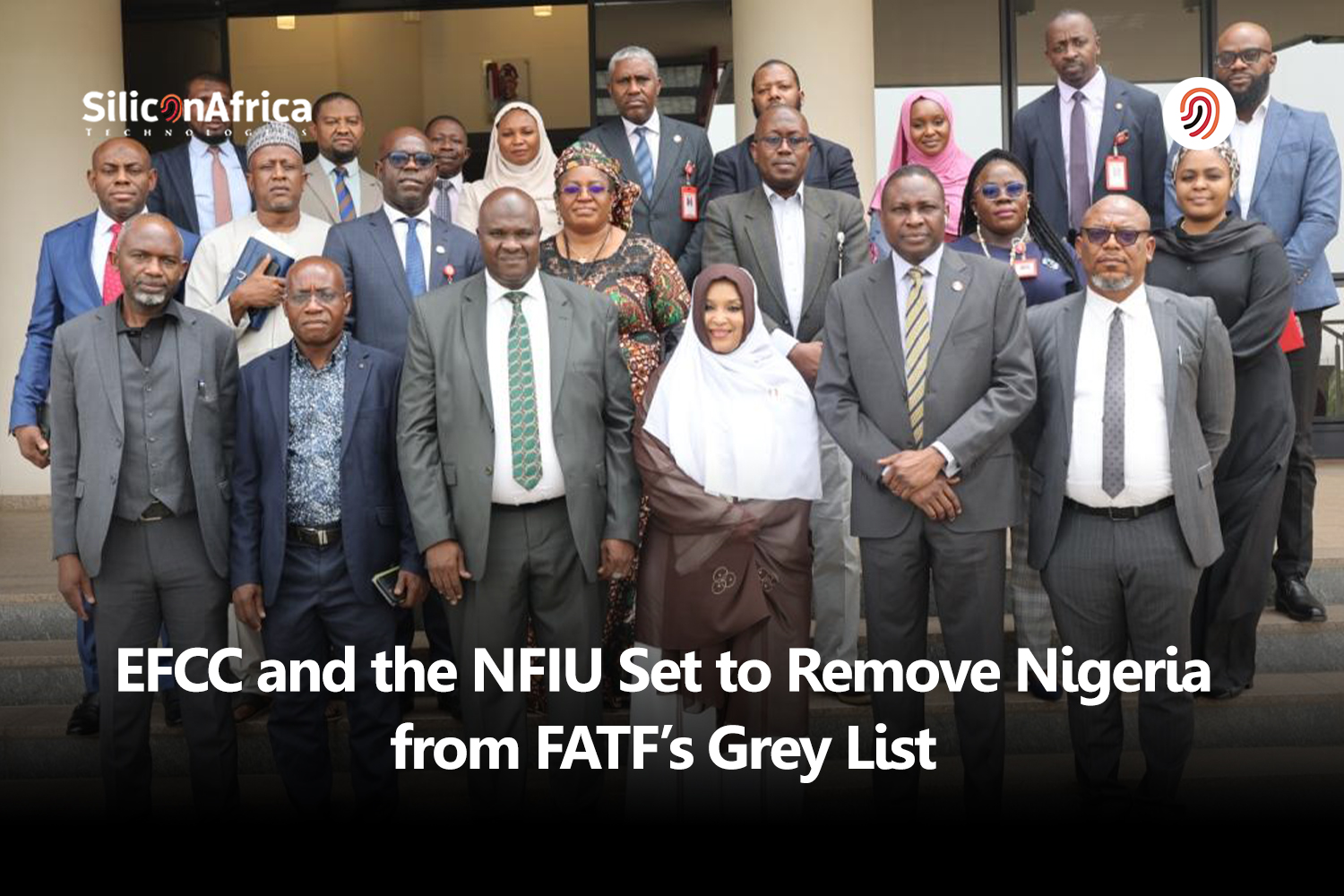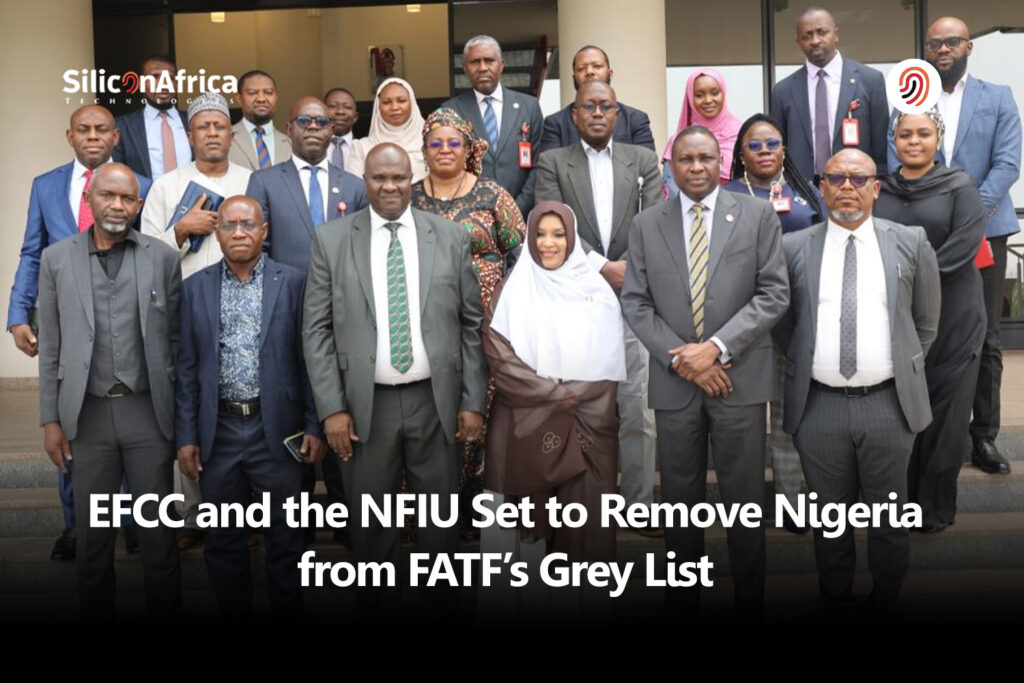Physical Address
60 Ekwema Cres, Layout 460281, Imo
Physical Address
60 Ekwema Cres, Layout 460281, Imo

EFCC, the Economic and Financial Crimes Commission, and the Nigeria Financial Intelligence Unit (NFIU) have mapped out new strategies. These strategies are to ensure the exit of the country from the FATF’s Grey list.

This is known as the Financial Action Task Force. It is an intergovernmental organization aimed at fighting money laundering and financing terrorism around the world.
There are two groups under the task force:
Nigeria and some other African countries are classified under the Grey’s list.
Read Also – MTN Group Appoints New Group Executive for Regulatory Matters, Mike Silber
The strategy to exit the FATF’s Grey list arose from a meeting between the Director and Chief Executive Officer of NFIU, Hafsat Abubakar Bakari, and the Executive Chairman of the EFCC, Ola Olukoyede, at the Commission’s corporate headquarters.
Bakari stated the meeting was borne from the same desire, the need for stronger bridges of relationship, and the FATF challenge. “Our visit today is a recognition of the shared history and a step towards building the foundations of a stronger partnership. We are also here to discuss the steps we need to take together to ensure that Nigeria exits from the Grey’s list of the Financial Action Task Force shortly.”
Also Read – MTN Exits Guinea-Bissau and Guinea-Conakry
Olukoyede, in his remarks, assured her of EFCC’s total involvement and commitment in all that is needed towards the exit.
He said, “We are together in this. The EFCC has been playing a major role in driving the exit action plan. And I assure you that we will not rest on our oars, not necessarily to satisfy the international community alone, but for the growth and development of our nation.”
He further stated, “Foreign interests alone must not drive us to do what is right, but the interest of our country. We should always do what is right at all times, not just to satisfy any foreign interests, but because right is right. Let’s carry out the action plan to grow our economy.”
In a presentation, the NFIU’s boss outlined the various intelligence-generating and sharing modalities her Unit has undertaken to serve relevant agencies across the country. She also laid bare how the NFIU has been enforcing compliance obligations of reporting entities to it.
“I assure the Commission that we will continue to carry out our assignments with utmost integrity and effectiveness,” she said.
The FATF publicly identified jurisdictions with inadequate measures to combat crimes, such as money laundering and terrorist financing. As of February 2024, 106 countries and jurisdictions have been identified. Out of 131 countries, 82 met the requirements and were removed from the process.
In February 2023, FATF added Nigeria to its list of countries under increased monitoring, referred to as the “Grey List.” However, Nigeria is urged to come up with an action comprising 19 items before Q2 2025.
Note that Nigeria is not the only African country under FATF’s increased monitoring list. Also, Mali, Burkina Faso, Cameroon, Mozambique, South Africa, Namibia, Tanzania, and Kenya are on the list.
Kenya announced in February 2024 that it is considering enacting new cryptocurrency trading laws to address money laundering and terrorism financing concerns and improve its standing with the FATF.
At the time, a sectoral working group was developing a policy document for the legislative framework. However, later that month, the FATF announced that Kenya and Namibia were subject to increased monitoring.